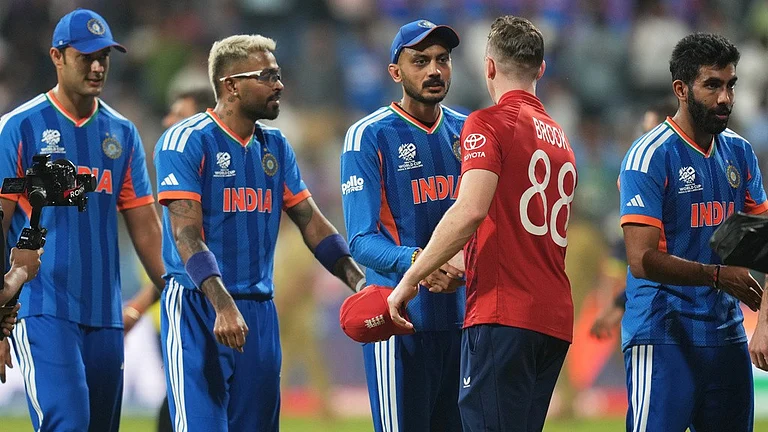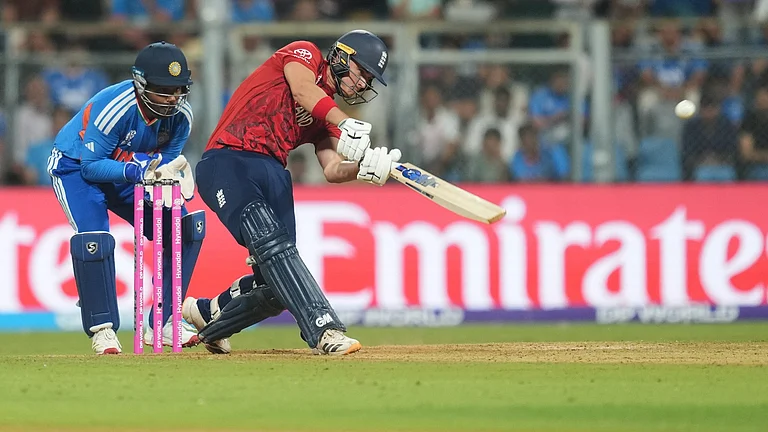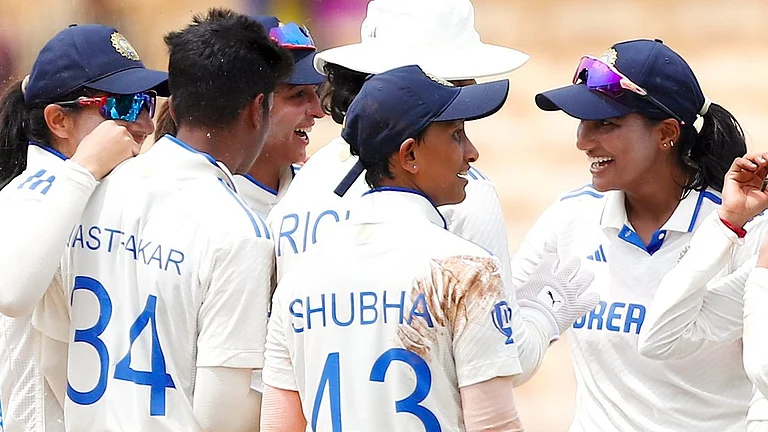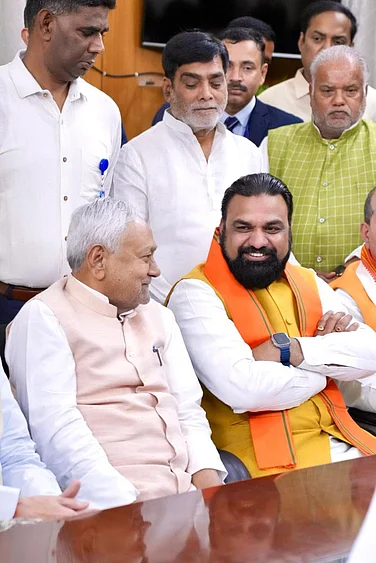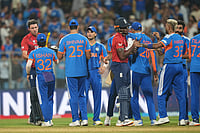Democracy is unthinkable without political parties. And without a committed base of volunteers, workers and cadres, it is hard for any party to survive in the competitive arena of electoral politics. While the burgeoning research on the transactional relationship between politicians and voters has improved our understanding about the role of political workers as middlemen, the research on their role as activist of political parties is conspicuous by its absence.
Even the knowledge of basic things such as the demographic profile of workers of a party largely relies on proxy measures such as its voting base. We assume that a BJP worker is more likely to be upper caste and urban, and a BSP activist would be a Dalit. Whereas the social base of political parties keeps shrinking and expanding, as we know from the experience of the BJP and the BSP over the past decade.
Similarly, we have rarely inquired into the levels of ideological attachment that political workers display. Do they see themselves as ideological messengers of a party, or merely as loyal soldiers of an ambitious politician? Do political intermediaries display partisan loyalties, or do they change political preferences at the drop of a hat? We also have very little knowledge of what proportion of such workers see politics as a full-time vocation and main source of earning their living. What do part-time political workers expect in return from their engagement in this field?
As party activists, politician’s agent, ticket aspirant, broker, fixer, etc all rolled into one, political workers are the most critical element of an understudied aspect of Indian politics. And this gaping hole is having serious consequences in interpreting the changing nature of Indian democracy.
Each year, India witnesses the emergence of dozens of new parties, but few manage to enter the Lok Sabha or Vidhan Sabha, and fewer manage to survive beyond two election cycles. Elections are also becoming increasingly costly, and yet the number of contesting candidates is also growingly rapidly, despite the fact that a vast majority of candidates lose their deposits.
ALSO READ: Unfailing Commitment Of CPI(M) Red Brigades
It is not uncommon for such contradictory tendencies to co-exist. The rapid proliferation of political parties and candidates has given rise to a scholarly consensus in defining the nature and character of Indian politics. Yet, empirical realities continue to defy the foundation of this consensus. The picture is much more complex than what the simple depictions and provocative generalisations tend to assume. To be clear, this assertion is not to suggest that the prevailing wisdom is mythical and has no connection with real world.
For example, the scholarly consensus that Indian political parties have very thin penetration on the ground is rooted in the fact that institutional rules governing organisational life of India’s parties remain weak. Most of them, except ideologically visible parties such as the BJP, lack physical infrastructure such as party offices below district-level, paid staff, formal relationship with civil society-based affiliates (e.g. trade unions), training modules for cadres, among other things. Only some state-level parties like the CPI(M) in Kerala, DMK in Tamil Nadu and the BSP in Uttar Pradesh used to display similar traits.
Amid this backdrop of organisational weakness, it is surprising that political parties in India tend to perform some core functions very well. First, they manage to mobilise a huge cache of human resources (workers and volunteers) and financial resources during elections. The spectacle of campaigning in India (though now much muted by the Election Commission’s restrictions) has perhaps no parallel on this planet. And very few would doubt the competitive nature of Indian elections. Across vast stretches of India’s political landscape, there are only a handful of constituencies that any party can boast as a long-term stronghold.
Of course, we all have heard about BJP’s much-publicised panna pramukhs (activist responsible for one page of the electoral roll) in recent times, but our knowledge of workers affiliated to other parties remains limited to them acting primarily as vote mobilisers. They put posters, mobilise supporters for rallies and procession during the campaign, convince their supporters to turn out in large numbers at the polling booth, collect donations for their parties and local candidates, among other things. The data presented in Figure 1 bears testimony to the fact that during campaigns, these workers-as-canvassers manage to reach out to a large number of households.

A majority of these workers often engage in such mobilisational activities with the aspiration that one day they will rise up the ranks. The party will reward them for their hard work and may even nominate them as candidates. Lakhs if not millions carry this hope every election cycle, and yet a majority of them continue volunteering at the same position where they started.
Second, India’s political parties often get depicted as machines that are assembled months before an election, before getting disassembled. If this is true, then what about the consensus that India is a patronage democracy, in which the main role of cadres is to act as intermediaries between citizens and the State? Or, do we think everyone in the system—voters, political workers, politicians, parties—are just freewheelers who keep shifting loyalties. If this is true, then what explains the stable patterns of electoral competition and resilience of existing power structures?
ALSO READ: RJD: Time For Reappraisal Of Party Cadres
It is true that the capacity of the Indian State to meet the demand of its citizens effectively has continued to remain low; especially in a scenario when a large segment of the population is critically dependent on State services for their well-being. While distributive politics often occurs through partisan channels and ethnic networks, citizens turn to their local party workers to assist them in navigating government offices, meeting with administrative officials, or simply getting work done. In the process, these activists sometime engage in charging what some may describe as a ‘convenience fee’, while others call it ‘rent-extraction’. Notwithstanding the nomenclature, very few political workers (or brokers) earn enough to live a comfortable life.
ALSO READ: The Slow And Steady Decline Of BSP
What motivates these political workers to continue volunteering with such little rewards? During the course of our research for our book Ideology and Identity: The Changing Party Systems of India that extensively uses National Election Study (NES) surveys conducted by Lokniti-CSDS, Pradeep Chhibber and I made some limited observations regarding party members. Since 1971, NES surveys have asked respondents not only which party they voted for, but also whether they identify or feel close to any party, and whether they are registered members of any party. The data indicates that since 1999, the proportion of those who identify with a political party and are a member of one, has been consistently above 30 per cent and 10 per cent respectively. While in comparative terms, the level of party identification in India is much lower than in Western democracies, but if one looks at party membership—the most advanced form of political identification—the metric compares favourably with the West.
Similarly, consistent with the literature on ideological contestation in the arena of party politics in Western democracies, the party identifiers as well as the party members in India display greater commitment to the party’s ideological worldview than the voters. And contrary to the claims of voters and political elites of changing political preferences, we find robust patterns of ideological competition in Indian politics. This is neither to downplay the outsized role charismatic leaders play in driving voters, or the role of money and patronage during elections. In our framework, leaders are heuristic or communicating devices who covey complex ideological and policy platforms to voters in simple language. The party members act as messengers in this framework. And the patronage effects remain marginal in structuring the election narrative. After all, the dismal rates at which incumbents get re-nominated and re-elected should serve a reminder to exaggerated claims of patronage politics driving electoral outcomes.
Finally, we noted that the social composition of those who identify with a party and report being a member, has undergone a major transformation. While the bottom half of the social pyramid—lower castes, the poor, women, religious minorities, less educated, etc—continue to remain proportionally under-represented, their share has risen significantly since the 1970s. In that sense, these two metrics reflects democratisation. In addition, the partisan composition of these two metrics has closely followed the trajectory of changing party systems in India. The data in Figure 2 on party identification reflects the altered position of the Congress and the BJP in the political setup.
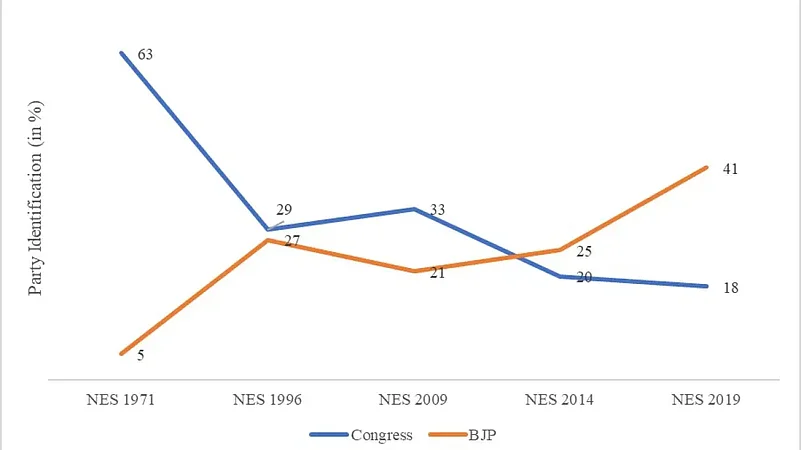
In conclusion, these political workers in many ways remain the unsung heroes of any political setup, carrying the burden of democracy on their shoulders. Their engagement in everyday political life carries both; the promises as well as the pitfalls of our democratic project. Needless to say, we must focus our gaze on political parties and their volunteers to understand the changing nature of Indian democracy.
***
(This appeared in the print edition as "Unsung Heroes of Democracy")
(Views expressed are personal)
Rahul Verma is a Fellow at the Centre for Policy Research, New Delhi



